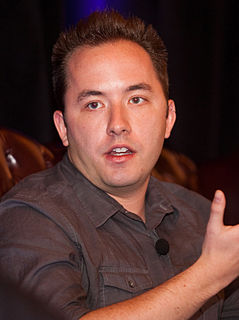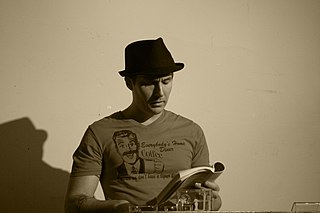A Quote by J.R. Ward
I've always kind of thought that reviews written by readers for readers are a kind of private space between consumers. It's their right to say anything they like about your material, and authors need to know that and respect that. As for my end, I'm aware of what my sales are, so I know that my books are working in the marketplace, at least for now, and beyond that, I have to just do my thing and stay focused.
Related Quotes
In the end all books are written for your friends. The problem after writing One Hundred Years of Solitude was that now I no longer know whom of the millions of readers I am writing for; this upsets and inhibits me. It's like a million eyes are looking at you and you don't really know what they think.
My theory about writing is that one should write books you'd like to read, but no one else has written yet. So, as long as I stick with that, I'm entertaining myself, and then hopefully my readers as well. I hope to god I realize that I'm repeating myself, if I ever do. But if I don't, I'm sure my readers will let me know.
I wasn't trying to write a corrective novel - that would just end up tasting like medicine, and I tried to stay away from polemics as best I could. I think that, if anything, Fobbit is my way of showing readers there's another side to war - the backstage of combat, if you will. If you play a word association game with Americans and say "war," what's the first thing that comes to mind? Soldiers running across a battlefield through a hail of bullets, right? Rambo, smoke, explosions. In Fobbit, I hope readers will see something a little different
I think a lot of the writing, you know, I write is just kind of like that where, you know. I write exactly how I'm feeling sometimes, and hardships that I'm going through. But I always end up, like the choruses are like, "God, You are good. God, you're faithful. You know, I know You understand, You're right here by my side." All these different things. And I just say very personal experiences that I've been through. I mean, it's not always detrimental thing.
I think when I was a young person, there was just kind of - there was very little dialogue about it. And there was just kind of one way to be gay, right? You saw very effeminate guys. You saw very butch women. And there was no kind of in-between. And there was no - you know, there wasn't anything in the media. There wasn't anything on television.
The funny thing is, nationalism only could have come about in Europe after the invention of printing. You could have this thing that was a book in a vernacular language, and you could imagine there were other readers of this book who you couldn't see, but they were a theoretical union of readers who all use the same language. That is kind of a prerequisite for a national fantasy. You need that thing, and it's a strange thing.
The good reviews that people have told me about through the years haven't really helped me do my job. So it's kind of like, if your hair turns out right you want to go out, you don't just want to stay in and look in the mirror. That's kind of what reading a review is like to me; it's like reveling in something that's just one night.
In terms of whether I use humor to allow me or my readers to come up for air, I don't think I put that much thought into it. I hate to say it, but I first have to entertain myself before I can think about the reader. I know that's kind of weird and selfish, but I write because it's fun, not because I need to put bread on the table.







































